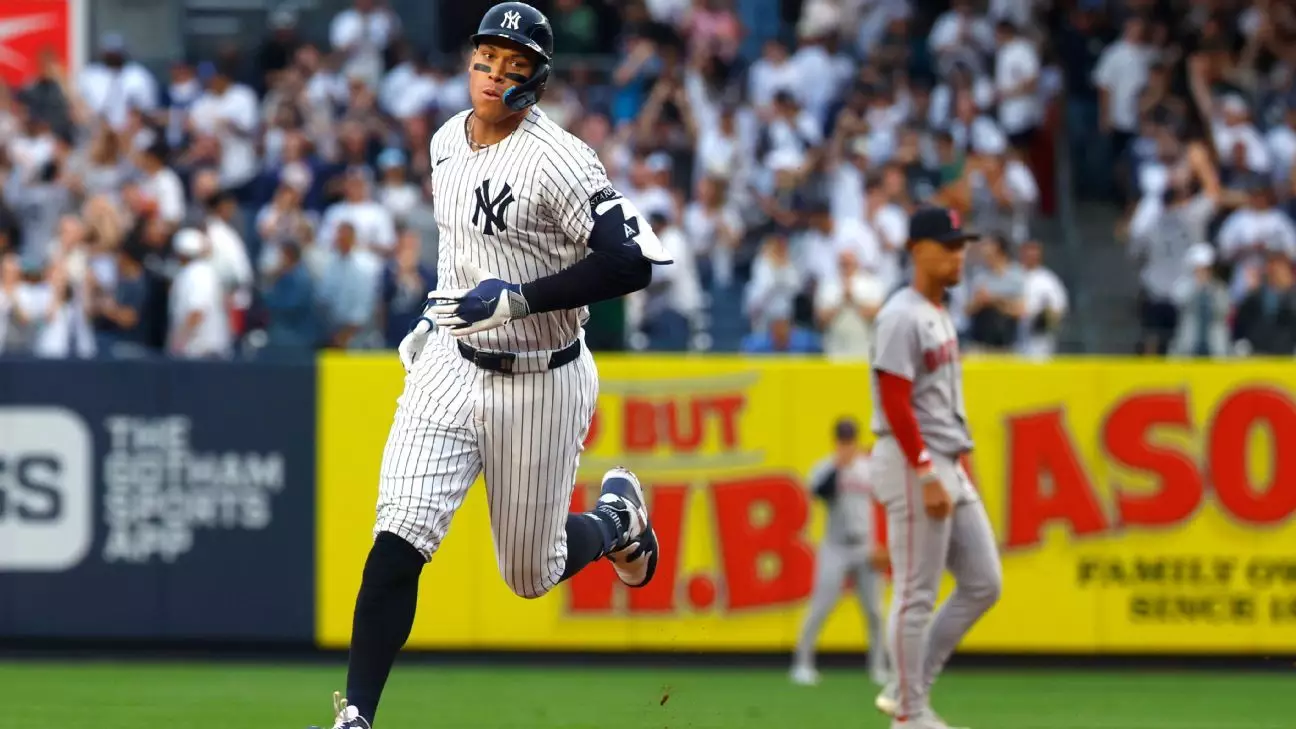The Yankees-Red Sox rivalry, often heralded as the most intense and storied in baseball, has seemingly dwindled to a mere flicker in recent years. The taut drama of fierce competition has been replaced by a sense of indifferent routine, leaving fans yearning for the heart-pounding excitement that defined this age-old contention. Yet, even in a landscape marked by complacency, new narratives can emerge from unexpected pockets of ambition. Enter rookie pitcher Hunter Dobbins, whose recent remarks have elicited both surprise and introspection, rekindling the embers of this historic feud long left to smolder.
Dobbins, a lifelong Red Sox devotee hailing from Texas, boldly proclaimed that he would rather retire than don the pinstripes of the Yankees. While such an audacious comment might invoke cheers from Red Sox Nation, it also casts a shadow of absurdity over the realization that professional sports should be a platform for rich opportunities, not a battleground for whimsical sentiments. Philadelphia recently voiced some qualms regarding players who declare loyalty to teams while disregarding their own career longevity.
Crimson and Navy: A Symbiotic Relationship
In an era where players often navigate treacherous waters of allegiance and commerce, Dobbins’ remarks opened a Pandora’s box, reminding both fans and players that emotions often play a paramount role in sports. Yankees captain Aaron Judge, who had no knowledge of Dobbins’ comments until they were relayed to him, offered a thoughtful perspective. The towering slugger quickly demonstrated the power of the moment by smacking a two-run homer off Dobbins, a fitting retort that showcased performance as the ultimate rebuttal to mere words. Judge’s resounding blast—recorded at an impressive 436 feet—proved that while words might provoke, actions speak volumes.
Yet the attention must shift back to Judge’s reaction. When a player of his stature, the reigning AL MVP, entangles himself in the drama and acknowledges an opponent’s bravado, the possibility of rivalry revitalization is tantalizingly close. In considering the essence of competition, it is vital to ponder: what exactly has led to the slow extinguishing of this once-lightning-infused rivalry? The solutions lie not only in individual comments but in the very culture of baseball itself, which somehow tends to lean heavily on tight-lipped professionalism rather than good-natured banter.
Jubilant Hyperbole: Where’s the Competitiveness?
Jazz Chisholm Jr., an emerging star in baseball, weighed in on the situation, labeling Dobbins’ proclamation as somewhat “outlandish.” His reaction, filled with the enthusiasm of a youth eager for burgeoning competitiveness, encapsulates a yearning for more conversational fireworks in the game. In a sport that has often suffered from a lack of personality and flair, isn’t it refreshing to see sincerity and audacity? This burgeoning desire for expressive authenticity offers hope for the game’s continued evolution into the glitz and glamour that many younger fans crave.
Herein lies a critique of both old and new school ideologies within baseball. The traditionalists, who implore athletes to maintain a level of decorum and restraint, may find themselves at odds with the younger, more rambunctious crowd that seeks to inject their own vibrant personalities into the mix. As a society, we ought to admit: a little controversy not only amuses but can reignite the passions behind long-standing rivalries. After all, it is the essence of a well-placed jab, the relish of a throwback comment, that keeps the essence of competition alive.
These circumstances must signal to organizations and players alike that how they engage with one another matters—not just for their respective teams but for the sport itself. As for Dobbins? His comments may orbit throughout the remainder of the season, inviting playful jabs and derisive chants from Yankee Stadium crowds. The trick is in translating this engagement into something tangible on the field, where both sides strive for dominance with a renewed vigor.

Leave a Reply